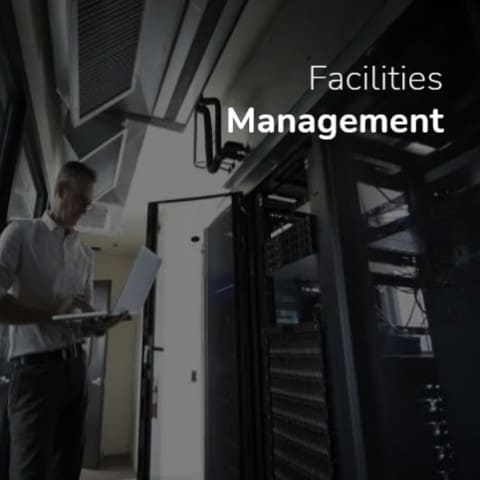In the age of digital transformation and burgeoning enterprise complexity, the requisites for auditing have evolved significantly. Auditing, once a straightforward process, is now fraught with myriad complexities, necessitating tools and methodologies that can grapple with advanced commercial undertakings. With the diversification of assets, be it hardware or software, and the interlaced financial intricacies that businesses today face, it’s crucial for any enterprise, especially those in the heart of the UK’s bustling business scene, to be equipped with robust auditing mechanisms.
Now, with the stage set, let’s dive deeper into the specifics of why the quintessential tool of yesteryears – the Excel spreadsheet – may not quite make the cut in today’s demanding business landscape.
The Limitations of Excel Spreadsheets in Auditing
Excel spreadsheets have, for decades, been the cornerstone of data analysis, financial planning, and yes, auditing. However, as businesses grow and evolve, the limitations of Excel become increasingly evident. Here are some pressing concerns associated with relying solely on Excel for auditing:
- Data Integrity Concerns: As the volume of data increases, the chances of human error multiply. Inadvertent cell edits, accidental deletions, or misinterpreted formulae can all lead to skewed results.
- Lack of Real-time Collaboration: In a world where instantaneous communication is key, Excel lacks real-time collaborative functionalities, making it difficult for multiple stakeholders to work simultaneously.
- Inefficiency in Handling Large Data Volumes: Excel is not designed to process vast amounts of data. Auditing processes, especially for software companies or those managing vast IT assets, require handling of extensive datasets which Excel struggles with.
- Inadequate Security Measures: With cybersecurity threats looming large, Excel does not offer advanced security measures to protect sensitive auditing data.
- Absence of Comprehensive Audit Trails: A critical feature for any auditing software is the ability to track changes and establish accountability. Excel’s capabilities in this area are rudimentary at best.
For businesses aiming to achieve efficiency, accuracy, and reliability in their auditing processes, the constraints posed by Excel are clear. In the next section, we will explore how bespoke systems and processes can remedy these challenges.
The Efficacy of Systems and Processes in Audit Efficiency
As the business world tilts towards automation and precision, traditional tools like Excel are rapidly being overshadowed by advanced systems tailored for audit efficacy. Here’s a deep dive into the myriad benefits of these sophisticated systems:
- Automated Data Collection and Validation: Modern audit systems come equipped with automated data collection tools. These tools not only enhance data accuracy but also validate them in real-time, ensuring that the data being audited is both relevant and current.
- Advanced Analytics Capabilities: Unlike Excel, advanced audit systems have powerful analytical engines that can process vast volumes of data, extrapolate trends, and provide actionable insights.
- Enhanced Security Protocols: With the rising menace of cyber threats, these systems incorporate high-end encryption and multi-factor authentication, ensuring that audit data remains uncompromised.
- Streamlined Collaboration: Built for the contemporary digital landscape, these systems allow multiple users to collaborate in real-time, making the audit process both seamless and efficient.
- Robust Audit Trails: Every change, every edit, and every access is logged meticulously. This not only fosters accountability but also ensures that any discrepancies can be traced back to their origin.
The merits of integrating systems and processes tailored for auditing are unmistakable. For companies like Capital, which are rooted in the UK and committed to driving efficiency, leveraging such systems is not just beneficial – it’s imperative.
Why UK-based Companies, like Capital, Lead in Optimising Audit Processes
The UK business ecosystem, renowned for its dynamism and innovation, has always been at the forefront of adopting progressive solutions. Capital, being a stalwart in this milieu, exemplifies this forward-thinking approach. Let’s delve into why UK-centric entities are ahead of the curve:
- Proactive Embrace of Digital Transformation: The UK business realm has been quick to embrace digitalisation, understanding its myriad advantages. Companies like Capital utilise cutting-edge technology not as a mere tool but as an integral facet of their operations.
- Regulatory Foresight: The UK’s regulatory environment is both robust and forward-thinking. This ensures that companies are not only compliant but are also incentivised to optimise their processes, including auditing.
- Collaborative Business Culture: UK companies, such as Capital, foster a culture of collaboration. Advanced audit systems, by their very nature, promote real-time teamwork, making them a perfect fit for the UK business ethos.
- Commitment to Efficiency: UK businesses understand the nexus between efficiency and competitiveness. Companies like Capital are emblematic of this ethos, leveraging systems and processes that drive efficiency, thus ensuring they remain at the vanguard of their respective sectors.
In the quintessential UK business fabric, where efficiency and innovation are paramount, companies like Capital stand as a testament to what is achievable when the right systems and processes are in place.
Challenges Faced by Business Owners, Software Companies, and IT Asset Management Firms
Auditing is an essential component for a plethora of business entities, especially those dealing with intricate software solutions or managing substantial IT assets. These companies grapple with unique challenges that necessitate robust auditing solutions:
- Dynamic Asset Landscapes: With rapidly evolving tech ecosystems, IT asset managers face the herculean task of keeping abreast of every addition, removal, or modification in their asset inventories.
- Software Licencing Complexities: Software companies, in particular, have to manage a web of licensing agreements, usage patterns, and compliance matrices. Ensuring that every software instance is audited and compliant becomes an imperative yet challenging endeavour.
- Data Redundancy Issues: Accumulation of redundant data can distort audit results. Business owners require systems that not only collate data but also sieve out redundancies, ensuring the sanctity of audit findings.
- Real-time Reporting Needs: In today’s fast-paced business arena, stakeholders demand real-time insights. The lag inherent in traditional auditing methods can lead to decision-making based on outdated information.
- Integration Challenges: With myriad software solutions employed in modern enterprises, ensuring that the auditing tool integrates seamlessly with all of them becomes paramount.
Recognising and addressing these challenges is the first step towards efficient and effective auditing. And as we’ll explore in the next section, Capital’s approach epitomises this proactive problem-solving methodology.
Integrating Advanced Systems for Enhanced Audit Efficiency
Capital’s modus operandi is not merely about recognising the challenges but proactively crafting solutions. Positioned at the nexus of advanced technology and visionary strategy, Capital’s approach to auditing is a beacon for modern enterprises. Here are the keystones of the Capital way:
- Bespoke Systems Integration: Recognising the unique needs of each business, Capital integrates bespoke systems tailored to ensure optimal auditing efficiency. This approach aligns perfectly with the dynamic requirements of software companies, IT asset managers, and other businesses.
- Continuous Process Optimisation: At Capital, the journey towards audit perfection is continuous. Regular reviews, system updates, and process refinements ensure that Capital remains at the pinnacle of audit efficiency.
- Real-time Data Analytics: Embracing the need for instantaneous insights, Capital’s systems provide real-time analytics, ensuring stakeholders are equipped with the most current data to inform their decisions.
- End-to-End Security: Understanding the sanctity of audit data, Capital deploys state-of-the-art security measures, ensuring every byte of data remains inviolate.
- Collaborative Ecosystem: In alignment with its UK ethos, Capital promotes a collaborative approach. Stakeholders, auditors, and decision-makers can seamlessly work together, driving efficiencies across the board.
In the complex tapestry of modern business, the Capital way shines as a paradigm of how auditing should be approached in the digital age.
The Need to Move Beyond Traditional Methods
In the intricate maze of modern business dynamics, relying on antiquated tools like Excel spreadsheets is akin to navigating a storm with a paper map. The need for robust, integrated, and advanced auditing systems is not a luxury; it’s an imperative. As businesses, particularly those managing software solutions and extensive IT assets, wade deeper into the digital realm, the challenges they face in auditing are only set to escalate.
Companies such as Capital, rooted in the UK’s innovative business landscape, are emblematic of the future of auditing. By marrying advanced technology with strategic foresight, they not only address the present challenges but also preemptively gear up for the future.
For businesses striving for accuracy, efficiency, and foresight in their auditing endeavours, the message is clear: the time to transition from the old to the new is not tomorrow, but today.





